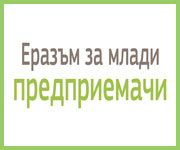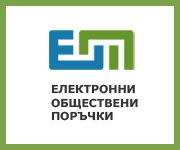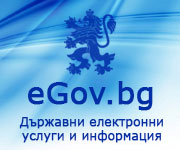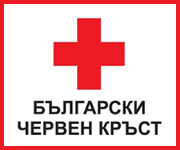Назад
What is your forecast for coming out of the crisis, since the Minister of Finance has announced its end four times already?
Назад
Tsvetan Simeonov: The market economy is returning to its normal course, with extremely severe competition and high requirements for the companies
The quality of education stands out as the main reason for youth unemployment
“We need speeded construction and improvement of the main infrastructure – road, sea, river, airport and railway infrastructure (before or at least at the same time as reconstructing Brazil’s railways) both on the territory of Bulgaria and for the purpose of its connection to the neighbouring Balkan states and Central Europe”, the President of the Bulgarian Chamber of Commerce and Industry Mr. Tsvetan Simeonov says in an interview for Information Agency CROSS.
His advice to the unemployed is to get acquainted with the list of experts and workers needed by the companies and to make use of the many re-qualification programmes.
Which of your goals for 2010 did you manage to achieve, and which didn’t you?
As a whole, BCCI’s goals for 2010 were aimed at facilitating the work of companies by improving the economic environment through identifying and analyzing its problems and proposing suitable solutions to them – both legislative and organizational. The hardest part is to put these solutions to practice, because neither the policy-makers, nor the state institutions are dynamic enough to address the challenges in reasonable terms. The dialogue is at a nice level, the consultative bodies worked better than before. However, the old flaws of the administration remain. The first problem is that the institutions often imitate a dialogue with us or ask for our opinion two days before the deadline and if we haven’t prepared analyses in advance, our specialists can’t perform their duties in the best possible way in order to find the most appropriate solution. Sometimes they even send us antedated letters which arrive in the Chamber after the deadline for a reply. The biggest problem, however, is the matter of changing the administration’s way of thinking. The administration still doesn’t realize that its purpose is to serve the companies and the citizens, to ease their existence, and not to protect fervently every procedure, for which the companies and citizens need to ask their agreement or permission, with the sole idea of feeling the taste of power. From there the road of public officials to corruption is short – just one step – to ask and to be given, or to be offered and to accept.
Another weakness of the administration persists as well – we make efforts, we put our experts’ potential to work, we devote our time and energy to formulate certain measures – the famous 60 measures – but most of them were never put into practice or were put into practice in a mutilated form. By now we were not only supposed to have implemented them, but we were supposed, after an evaluation of their impact, to have started work on the next set of measures. In the current situation, I am sorry that I have to remind it, we will stand a chance only if we keep in mind and follow the principle that it is not the big fish that eat the small ones, but the fast fish that finish off the slow ones.
Therefore, the incompetence and the inaction of the administration must be prosecuted as mercilessly, if not more, rather than when someone has worked intensively, released a hundred projects but one or two of them had flaws. It must always be kept in mind that when relatives or people close to the administrators have been favoured in some way, the only possible way must be to the Prosecutor’s Office.
The main problems of the economy have escalated due to the crisis. The severe competition for the shrunk market left some companies alive, but will announce the death sentence to many others, which didn’t react adequately and didn’t improve the management of the companies in the sense of tightening the quality control. This means discipline and strictly adhering to the standards, reducing the raw materials costs by using them more efficiently, decreasing the personnel costs by introducing new high-productive technologies and respectively discharging the inefficient workers, re-qualification and improvement of the knowledge of the employees that are willing to evolve and to be useful to the company. They had to make efforts to lower energy costs, and we know that Bulgarian companies are still leaders in the area of energy consumption. The effect of “closing” of the consumers and passing into a regime of saving and economizing also needs to be taken into consideration. As a result, the deposits have increased sensibly. We should mention, however, that excessive saving is not a positive behaviour - neither for the companies, nor for the citizens. For the companies, in some cases, it may mean a missed opportunity to buy now, at a reasonable price, before the demand for a new technology has increased, and then to have one more advantage over one’s competitors on the market when the market begins hopefully to “open” more palpably. For the citizens, on the other hand, this may mean a lost opportunity to buy something today, at a reasonable price, which won’t be the same tomorrow if the market starts improving.
Which problems do you think you didn’t manage to overcome in 2010?
The fight against the grey economy will be in the focus of attention for many years to come, until we manage to confine it to reasonable scales. Our project in the field of labour and social security relations continues and, what is more important, it continues according to plan. At least for now, we are sure that a huge number of people in the society have received from us information about what is right and what is wrong in their everyday work – this is the first step towards a change of mentality. Unfortunately, the state which has to set a perfect example, turned out to be a step-mother for the companies, paying them with deductions for their otherwise well-performed and timely work. The tax policy was conservative and this turned out fine in the current conditions when the tax rates remained unchanged. The negative thing is that, despite the statements for dismissals of administrative employees, we see no practical results from the intention of reducing the administration costs, which is not encouraging. Let’s place ourselves ahead in time in order to note that one of the main factors which will diminish the benefit from the otherwise excellent positions of our country, as compared to the other countries, is low tax rates for example. Another negative thing is that in the European perspective as well one doesn’t see clear signals and practical steps towards reducing the size of EU administration – in the maintenance of which Bulgarian citizens and companies also take part, and in the future will take part even more. Of course, we coordinate our efforts with the network of chambers of commerce united in the Association of the European Chambers of Commerce and Industry – EUROCHAMBRES. We have serious partners in the face of European politicians and parties, working and initiative groups, which we will decisively continue to support. It is important to know that in 2010 BCCI expressed its position on 20 legislative acts, 7 secondary legislative acts and 7 strategies, programmes, plans and regarding some main economic problems; we also sent statements to the Constitutional Court.
Curiously, the proportion between the number of proposals made by the Chamber and those adopted by the institutions shows that BCCI’s proposals were entirely or partially adopted regarding 11 projects, none of our proposals were adopted regarding 10 projects, and 13 projects are still being discussed. In 2010 some suggestions of BCCI of major importance were adopted – e.g. not to increase the health insurance contribution for 2011, to partially reduce the requirements for participation in public procurement procedures for the associations, to pass a Branch Organizations Act (adopted in the Programme for Better Regulation 2010 – 2013 of the Government) and to exempt international organizations from value added tax (VAT) (based on an EU directive). During the past year, the BCCI wanted to achieve another specific goal – to guarantee the macroeconomic stability. The Bulgarian Chamber of Commerce and Industry also managed to achieve most of its goals, among which to adhere to the rules of the Currency Board until Bulgaria enters the Eurozone, to restrict the resources redistributed through the budget to a maximum of 35% of the GDP, to carry out reforms aimed at increasing the efficiency and tangibly reducing the expenses in the public sector, to improve the conditions for economic activity and to restrict the consequences of the economic crisis.
These are also somewhat positive results, but where did you stumble?
We didn’t stumble, but the Chamber practically didn’t manage to achieve some of its goals, such as to reduce dramatically the number of regulatory regimes and to transfer registration regimes to the branch organizations in the order, provided by the law. We wished for a strict adherence to the regulatory requirement for a preliminary evaluation of the impact of draft-bills (as provided in the Statutory Instruments Act), as well as for increasing the control over the tax, social security and customs regime observance (especially regarding the import of goods with lowered prices and goods, which breach the industrial property rights). We expected administrative and penal sanctions to be imposed quickly when breaches were discovered, in order to drastically reduce the size of the grey sector and corruption. We insisted that the control bodies impose real punishments on the offenders, instead of occupying their time with constant presence in the transparent companies, just because they are at hand.
We were supposed to see a considerable reduction of administrative fees and to hear the arguments when their size was defined. This is also a goal, which we didn’t manage to achieve, as well as the expectation for higher transparency in the procedure for awarding public procurement contracts. This could be achieved by including representatives of the branch organizations in the evaluation committees and providing more data in public procurements register. We expected that when public procurements were awarded, foreign companies from non-European countries which don’t allow the participation of Bulgarian companies in their public procurements would not be allowed to participate, as well as companies which receive direct or indirect benefits from public resources. Another goal which remains for us at BCCI is the optimization of the tax and social security regimes. The Chamber also didn’t manage to achieve the quick introduction of the principle “The state – an exemplary payer” in the practice of the state bodies. We struggled to remove the 5% dividend tax and to decrease by 5% the income tax for sole proprietors, to remove the taxation for business trips over the limit determined for the public sector; we wanted clear regulations for exemption from VAT of the payments between partners in international EU-funded projects. Finally, we expected that the terms for VAT repayment would be shortened and clear deadlines would be defined as well as responsibilities for the tax authorities in case they miss them. We really wanted the already existing capacity of the National Revenue Agency to be used to the fullest, and the joint liability for VAT to be removed. At the same time we demanded transparency in the work of the tax administration to be ensured and the employees responsible for the liability of undeserving companies, which don’t have the resources or the means of NRA to check their contracting parties, to be punished.
BCCI often happens to help with its Trade Register, its classification, and the data for the financial reports of companies, but only the state administration has comprehensive information and it is unforgivable that it doesn’t use it to the fullest and directly in service of the society. During the past year the Chamber didn’t succeed in the fight for lowering the social security burden for companies and the equal participation of employers and employees in their contribution to the pension funds, while keeping the incentives for the additional voluntary pension security. If the equal participation had become a fact, the unions probably wouldn’t have agreed so willingly to increase the contributions. The Chamber and Bulgaria didn’t achieve a balanced relationship between the workers and employees and the employers. Our aim was a balanced freedom of contracting between the workers/employees and the employers, creating a more flexible labour market, including simplified conditions for starting and ending the labour relationships. We wanted to assist the state in the development of a mechanism for defining the minimum wage by providing the basic criteria – growth of production and of GDP per capita, removing the obligation of employers to pay for expenses which are extrinsic to the production. This is unfortunate but we will continue our work on the Labour Code, on which we have been working for over twenty years.
How do your evaluate the dialogue with the government? There were some accusations that the government protects the interests of the business, rather than those of the labour unions.
There was a dialogue, but it was not in favour of the business. On the contrary, the government took its decisions under enormous social pressure. The analysis of the results for the previous period shows an increase in BCCI’s activity related to proposals about legislative acts (more than half of the Chamber’s positions regarded such acts) and a relatively slight decrease in the number of entirely or partially adopted proposals of BCCI – 32 % during the last year, as compared to 38% during the ten months of 2009. The explanation for the increase in expressed positions about legislative acts can be found in the somewhat indecisive behaviour of the ruling political majority (introducing into the National Assembly and then withdrawing bills on the amendment and supplement to the same acts).
What is your forecast for coming out of the crisis, since the Minister of Finance has announced its end four times already?
Constantly using the crisis as an excuse is not good for anyone. We at BCCI arrived at the conclusion that the companies, which abide by the rules of the market economy, follow its principles and adhere to the rules of good management, will never be threatened to close because of the so called crisis. The financial results of many Bulgarian companies prove that this is the correct conclusion. It simply needs to be clear that the world economy returned to its normal strict requirements after a short period of 15-20 years, after the collapse of the planned economy and the enormous niches, which the market economy had to fill. This filling happened with the feeling of euphoria for the newly opened opportunities and without keeping in mind the possibility that the opportunities for intensive growth will one day cease to exist, at least until we find a free planet to colonize. This time is over and the market economy is returning to its normal course, with extremely severe competition and high requirements for the companies participating on the market.
The salvation for each company can be found in only one word – quality of the product – whether we mean goods or services.
What is the future of our economy? What are the opportunities for the employers?
The economy will grow, even though slowly. According to a research conducted by BCCI for EUROCHAMBRES, an increase in export, the rate of employment and the investments of companies is expected, and an improvement of the business climate in 2011 in general. In the future, credit granting will be more active, the export will be the main factor for economic growth, new markets will be opened, machine building and the extraction industry will do well, the food-and-drink industry has a lot of potential, and local companies will invest cautiously, with a tendency to increase investments. However, the future of our economy holds some risks and dangers. It is possible for the inflation to grow, as a result of the price of energy sources, which will put pressure on the wages which are not backed by a growth in production. Besides, consumption will remain low, there will be a leak of capitals due to the unpredictable economic situation and the companies will refrain themselves from hiring unqualified employees, so the advice to the unemployed is to get acquainted with the list of experts and workers needed by the companies and as soon as possible to make use of the many programmes of the Ministry of Labour and Social Policy for re-qualification and improvement of the knowledge for the needed professions.
An increase in the price of bread and other goods is expected, due to the increase in the price of grain and the higher excise duties. What is your forecast?
This is a tendency which is appearing now, but it may be a signal for an increase in demand, because in the market economy, the prices cannot grow unless there is an increase in demand. The Bulgarian Chamber of Commerce and Industry is going to analyze whether this is a normal process of inflation which is a result of the expectations that the market will remain “closed” during this year, because the lack of supply and the “closing” of the market as a result of the retreat of many companies from production, is also an effect, which is going to take place. I still think that the world economy will quickly enough and with pleasure take on the challenge of raising the prices, in order to offer better products for them.
In what direction are you working in order to reduce the rate of youth unemployment?
The quality of education stands out as the main reason for youth unemployment. BCCI’s surveys show that there is a discrepancy between the educational programmes and the actual needs of the young experts for their integration in the work process. The business is the one that creates lasting employment, but the education system turns out to be unprepared to provide young people with qualifications which correspond to the needs of the entrepreneurs. Our education system is not efficient enough, because very often the employers need to invest additionally in the education of the young people they hire. But there are no ready-made solutions. I think that the best one is for the media to show more often successful young people, who work ambitiously and not only gain knowledge, but seek the challenges of the practical work, and lately these challenges are huge. They hold the potential and are the future of Bulgaria, Europe and the world. Keeping these conclusions in mind, the decrease of the state subsidy for the Ministry of Education as opposed to visible increase in the funds for the other Ministries puzzles the analysts.
What are the successful measures that need to be taken in order to have growth in the economy next year?
I will start with the measures that have already been agreed on. An important direction for the Government’s actions is the speeded privatization of the packages of state-held shares in the companies, more substantial concessions, the sale of emissions of harmful gases (under the Kyoto protocol), better control over the prices of energy sources, fight against contraband and organized crime, and more transparent and quicker absorption of the funds allocated under the EU Operational programmes.
I hope that the ruling party has heard EC President Barroso, who on the eve of the New Year 2011 sent them a worried letter, in which he repeats to them what we have said over a hundred times - that the absorption of EU funds is insufficient, that there is a risk of losing money and that actions need to be taken and “activity” must be encouraged, as opposed to doing nothing for the fear of making mistakes. There are no visible signs that measures and actions have been outlined in order to allow Bulgaria to keep the funds intended for it, if the country doesn’t manage to absorb them in time. There is no visible analysis of the shortcomings, even despite the fact that fairly large number of the proposals of the business to simplify the procedures and to shorten the time limits has been put into practice. The question with advance payments still remains – they were increased only for the municipalities, maybe because the Minister in charge of the payments has municipal experience; but do we need to wait for a businessman to get in charge of the funds, so that he can trust the companies and increase the advance payments for them as well?
The measures that we are going to propose for next year are to drastically reduce the number of regulatory regimes; to transfer registration regimes to the branch organizations in the order, provided by the law; strict adherence to the regulatory requirement for a preliminary evaluation of the impact of draft-bills; increasing the control over the tax, social security and customs regime observance; considerable reduction of administrative fees and clear argumentation when defining their size; and higher transparency in the procedure for awarding public procurement contracts.
What are your goals for 2011?
Our goals for next year are to achieve concrete solutions to the goals specified in the Guidelines for the Activity of the Bulgarian Chamber of Commerce and Industry, to their optimum solution, broadening the information possibilities for access to countries with high economic growth and using the regional business-contacts, which we have created over the years, within the framework of our Presidency of the Association of the Balkan Chambers. We will continue to work for the protection of the interests of our members, which are over 50 000 and are united in 28 Regional Chambers of Commerce and Industry and over 100 Branch Organizations, whose trust confidently makes us the largest employers’ organization in Bulgaria. In 2011 we will continue with our visits in the regions in order to have exact information about the peculiarities and the possibilities which they offer to the investors.
What are the expectations of your members with regard to the business climate?
The expectations for an improvement of the business climate are higher than they were the previous year. The optimistic expectations have reached up to 34 per cent – the wish for its improvement is more in the sphere of services. The expectations for the sales revenue are also positive and even if they come true in half, the growth in Bulgaria will be at least as much as the one predicted by the Ministry of Finance, if not higher. As far as domestic sales are concerned – the results are a little lower. It is obvious that Bulgarian business is aware of the attitudes of Bulgarian consumers in the conditions of a crisis – to lower their expenses and to pile up their savings – which is also evident from the figures of the Bulgarian National Bank. There is a slight decrease in the expectations for the sales abroad, which is a little disturbing, because we were very pleased to see that in our foreign trade the decline in imports and the rise in exports reach numbers which were unthinkable in the near past – a proportion which surprised even the analysts. This is a tendency which we would like to keep, and the Bulgarian Chamber of Commerce and Industry will do anything in its power to open new markets for our businessmen. I hope that the diplomatic corps and the commercial representatives will have the same goal.
10.01.2011
Още новини:
-
23-12-2010
-
21-12-2010
-
14-12-2010

 1 USD =
1 USD =  1 GBP =
1 GBP =  1 CHF =
1 CHF =  ISO 9001:2015
ISO 9001:2015





























